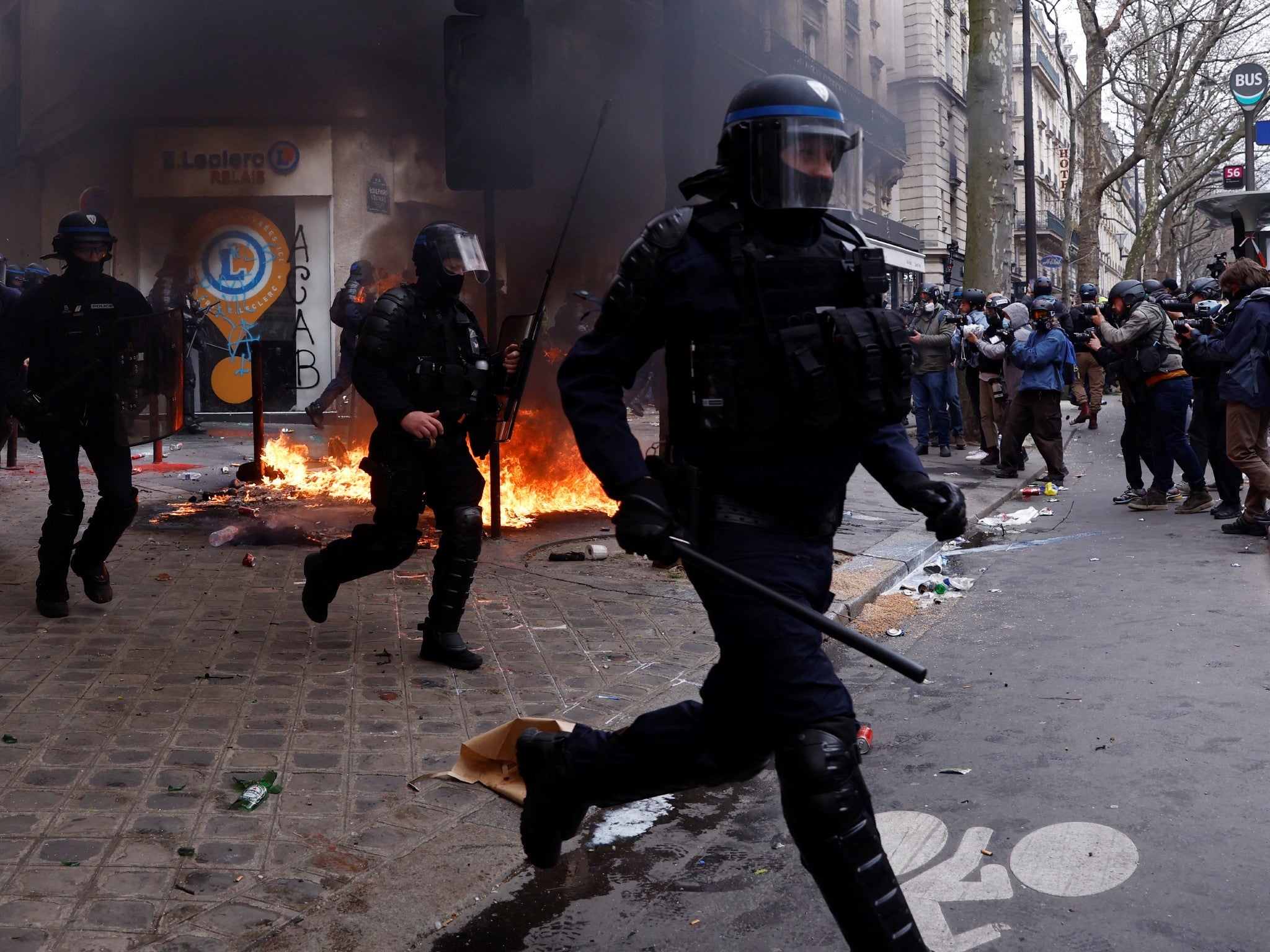Protests, riots, violence: So, is France still a great place to live?
It hurts to see the radical fringe threatening to overwhelm the debate, putting a flame to the streets of France’s beautiful old regional cities, writes Richard Ogier


A joke on social media currently is that, if you can avoid the civilian unrest, France is still a great place to live: for the food, for the wine, and for the retirement at 64. Millions of Europeans plan to emigrate.
If you’ve seen images this week of black-clad young men running poles into Paris shop windows, and sworn you heard that the trigger was a plan to raise the retirement age to 64, you heard right. It is currently 62 in France. But economists say the reform, in stages to 2030, won’t balance the pension budget by that target date anyway.
So the change is modest. Yet France has gone into a blaze of strikes and protests – burning bins; allowing thousands of tonnes of rubbish to pile up in the streets; with public transport and petrol pumps severely affected. Some commentators say the strife has worsened to the point of threatening ordinary civilian peace.
Alarmist? Well, certainly alarming is that, as columnist Guillaume Tabard noted this week, the French political class used to condemn outright all physical violence, whatever the political stripe. Suddenly, that is no longer the case.
The left-wing “Nupes”, who gobbled up the moderate Socialist Party last year, have unanimously condemned incidents of police violence, without equally condemning the marauding antics of “les casseurs”. These are the black-dressed young men – thuggish hard-core anarchists – wielding hammers and iron bars.
So what on earth is going on? France is riding a wave of strikes and protest days – 10 staggered over recent months – against president Emmanuel Macron’s bid to change France’s generous pay-as-you-go pension system. He’s raising the retirement age to 64. But demonstrations have really intensified since the president, with a minority government in the House, decided to use a constitutional article (49.3) to push through his reform without a parliamentary vote.
As for interpretation, one camp argues that France is woefully out of touch. If nothing is done, the pension system will be in the red by €15-20bn (£13-17.6bn) in less than a decade; this, in the wider context of public debt already at almost €3 trillion and climbing.
“France believes itself so superior to others, from a moral and intellectual point of view, that it sees no inconvenience in the fact that it isolates itself by (dint of) its choices,” according to economist Olivier Babeau. “We believe that, in an ageing society, it must be possible to continue to finance the most generous system of social protection in the world by working less than elsewhere.”
The opposing argument is that previous pension reforms have required people to work longer, without addressing the key French problem of a very low employment rate among seniors; that is, people aged 55 to 64.
The attendant politics is also divisive. Macron has dropped a measure that is deeply unpopular, though doing the “right thing” can necessitate being unpopular for political leaders (indeed sometimes requires it). The president has been upfront about the necessity for pension reform since before he was elected, and so surely he should deliver on that promise... or not? About 70 per cent of the French are against the reform, according to public opinion polling.
The fact is that there is some stuff buried in this for the rest of us, too: a political class not listening, or perceived to be not listening, is a leg up for populism. Perhaps democracy works more effectively when people feel more closely associated with the decision-making process.
The good-humoured answer to the current unrest is that France’s DNA is latent radicalism (or, in this case, not so latent). But more seriously, a very current, very French lack of confidence in the political class is due to a brand of monarchical democracy here that is arguably now out of date.
Either way, the violence has rather drained the humour from current events in France. It hurts to see the radical fringe threatening to overwhelm the debate, putting a flame to the streets of France’s beautiful old regional cities.
Richard Ogier is an Australian journalist and consultant based in Strasbourg






Join our commenting forum
Join thought-provoking conversations, follow other Independent readers and see their replies
Comments